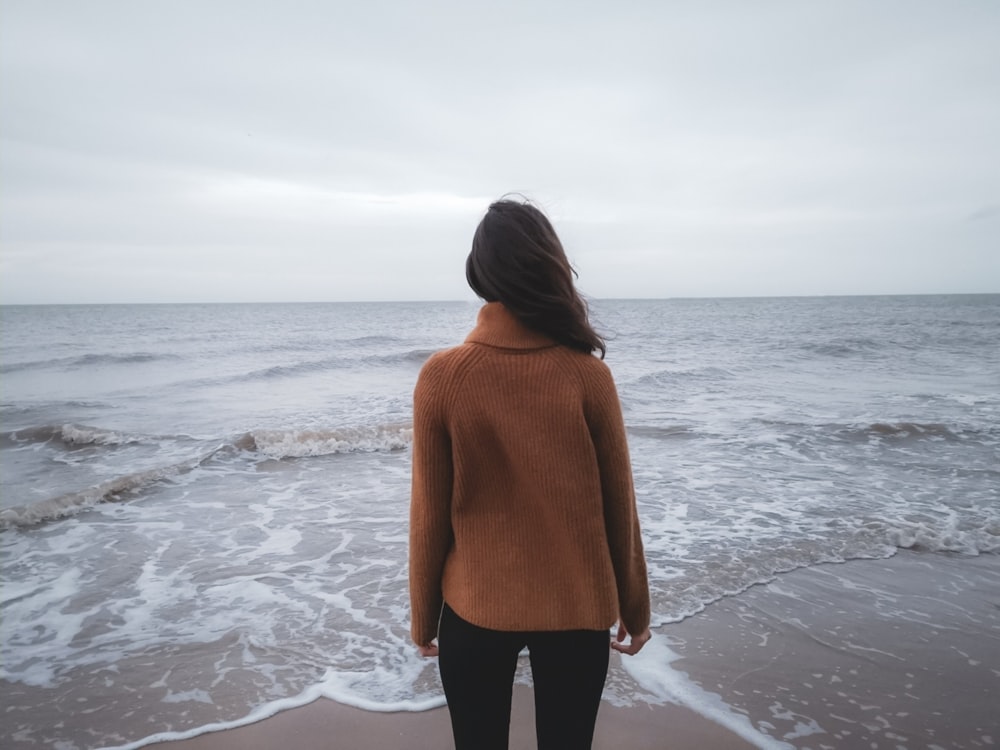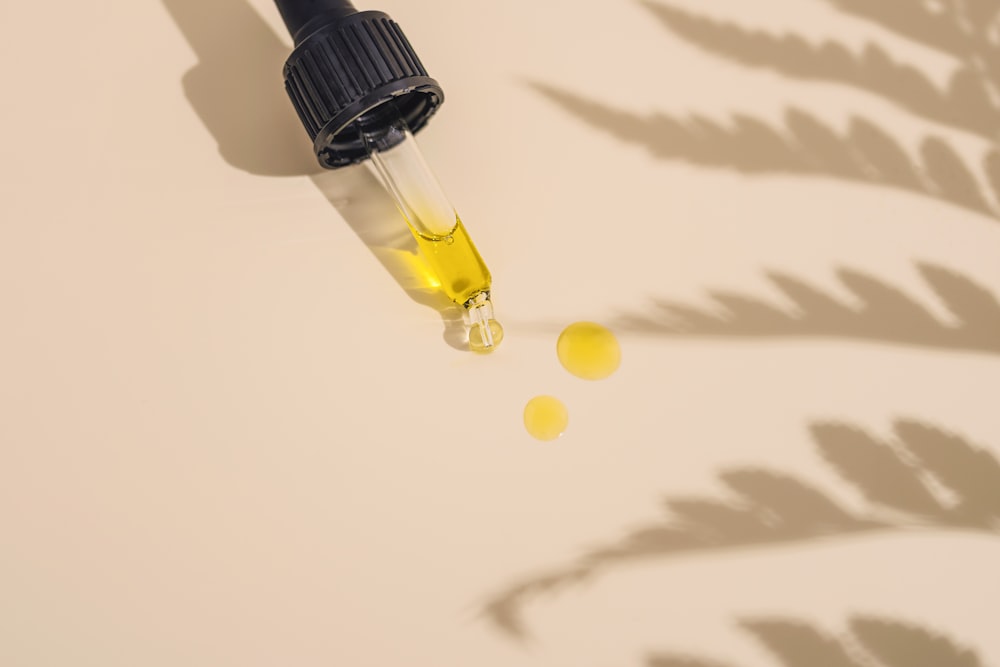
Dealing with anxiety is not an easy battle, especially if it’s chronic anxiety, or an anxiety disorder such as PTSD or generalized anxiety disorder.
When you struggle with anxiety, there are some days that feel impossible, and other days where your anxious thoughts aren’t quite as intrusive or debilitating.
Anxiety disorders are known as the ‘invisible illness’ because many people with chronic anxiety seem perfectly healthy to their peers, as their mental anguish is invisible. Anxiety is an internal battle that can get out of control and diminish your quality of life, as well as impacting your relationships.
Anxiety disorders are very challenging mental illnesses to live with, and they can get in the way of daily functioning, personal relationships, and even your job.
Fortunately, there are many different treatment options available for those who suffer with anxiety, from natural herbal remedies and exercises, to counseling and prescription medications.
What Exactly is Anxiety?
Anxiety can be defined as a feeling of unease, worry, or fear, often for no apparent reason. Some might also describe it as a feeling of impending doom.
Anxious thoughts are often triggered by feelings of uncertainty, or caused by certain fears.
Some people describe anxiety as feeling overly concerned about everything or overthinking everything, and caring too much about everything (also known as sweating the small stuff.) Anxious thoughts can be incredibly difficult to ‘turn off’ if you have not learned self-regulation techniques.
It’s normal for everyone to feel anxious sometimes, but when it becomes a regular or consistent feeling, it’s likely a diagnosable mental health condition. It’s worth speaking to your doctor and getting a referral to see a psychiatrist.
When we are feeling anxious, our nervous system is dysregulated, which makes us feel ‘on edge’ or physically uncomfortable. Due to the activation of our fight-or-flight response during an anxiety episode, we feel dysregulated and emotionally distressed. The flight-or-flight response is supposed to be a natural reaction to feeling threatened, under pressure, or stressed. Sometimes, however, your anxiety can cause your body’s fight-or-flight response to activate even though no actual threat is present. You might not always be able to pinpoint a specific trigger, and the anxiety episode emerges unexpectedly. Other times, something does trigger your anxiety, and even though you’re safe at home, your body begins responding as though an intruder is at your door.
Anxiety is not always entirely a negative experience. Anxiety can help to motivate us and keep us alert, and it can make us aware of any risks surrounding us, as well as improve problem-solving capabilities.
Anxiety becomes a serious problem that needs to be professionally addressed if it is impacting your daily life to the point where you are struggling to perform basic daily tasks.
When anxiety becomes constant, intense, prolonged, ongoing, hard to control, or blown out of proportion to your current situation, these are the signs that it is a mental health condition. The good news is that help is always available, and treatments are always available.

Different Types of Anxiety
There are several types of anxiety, and you can suffer from one of them or multiple forms. Here is a quick breakdown of some of the different types of anxiety, or mental illnesses that have anxiety as a core symptom:
- Generalized Anxiety Disorder
- Social Anxiety
- Panic Disorder
- Post-Traumatic Stress Disorder (PTSD)
- Obsessive Compulsive Disorder (OCD)
- Phobias such as Agoraphobia (fear of leaving the house)
It’s important to read these articles that explain the difference between stress and anxiety, and the difference between panic and anxiety. This way, you can pinpoint whether or not anxiety is your problem, and then seek appropriate treatment.
What Causes Anxiety and Anxiety Disorders?
There are many different causes of anxiety, and there isn’t necessarily just one reason why you have developed it. Some of the most common causes of anxiety disorders are:
- Genetics (your DNA impacts your natural response to stress, and your proneness to mental illnesses related to anxiety)
- Trauma (such as domestic violence, car accidents, or being the victim of a crime)
- Chaotic family dynamics
- Serious life changes (such as death of a partner, or losing your house in a natural disaster)
- Having a very ill family member
- Long-term health conditions
- Drug or alcohol abuse
- Loneliness or fear of being alone
- Financial stresses
- Bullying
- Strained personal relationships (such as being in a toxic relationship)
- Chaotic home environment (such as an incredibly messy apartment or a bad roommate)
- Job stress or fear of losing your job
These are only some of the potential causes of anxiety. Many people will experience anxiety for other reasons as well.

Treatments and Therapies for Anxiety
There are many different types of ways to treat your anxiety. Natural remedies such as CBD oil, grounding exercises and nature therapy can work in conjunction with more professional treatments such as counseling or prescription medication. For this reason, many anxiety sufferers use more than one treatment method in their anxiety management program.
Below are some common ways to treat anxiety, to reduce your anxiety episodes or help you manage the symptoms:
Self-Regulation
When you have anxiety, your nervous system is often dysregulated. This can create physical and emotional responses that feel uncomfortable, but you can learn how to self-regulate your nervous system and self-soothe.
Many people discover self-regulation strategies by seeing a counselor, and others just experiment with different ideas while they’re feeling dysregulated, so they can see what works for them to self-regulate.
Self-regulation strategies include going for a walk outside and watching the sunset, doing grounding exercises, singing karaoke, watching the flames at a bonfire or in a fireplace, doing deep breathing exercises, and more.
Anxiety-Focused Therapy or Counseling Sessions
Many Registered Clinical Counselors or Psychologists specialize in anxiety or trauma. There are also certain types of therapy that are known for being good for treating anxiety. These include:
- Somatic Therapy (this can include specialized massages if trauma is stored in your body, sensation awareness exercises, and breathing exercises with your therapist)
- Cognitive Behavioral Therapy (CBT)
- Exposure Therapy (this is especially good for phobia-related anxiety)
- Interpersonal Therapy (excellent for social anxiety)
CBD Oil
CBD oil is made from the cannabis plant, but it does not get you ‘stoned’ or ‘high’. Instead, CBD oil has anxiety-reducing properties that can help your body and mind relax, and it can even help you fall asleep. This is great news for people who have anxious thoughts that prevent them from falling asleep at night, but are against taking sleeping pills.
Prescription Medication
If you’ve tried counseling, and tried many natural remedies for anxiety, but you’re still experiencing chronic anxiety or panic attacks, your doctor may prescribe medication for your anxiety. Anti-anxiety medications such as Ativan or Xanax can be addictive and can have other negative side effects, so it’s best to try natural remedies for anxiety if you can, which brings us to our next anxiety treatment tip:
Kava Kava, Ashwagandha, Chamomile, or Other Herbal Remedies
You may find that a natural plant-based remedy for anxiety works better for you than prescription medication. This is because many plant-based substances such as Kava Kava or Ashwagandha, can legitimately combat the symptoms of anxiety and help relax you or shift your mood out of an anxious state. Try experimenting with a few plant-based remedies (in the recommended doses from your naturopath) and see what works best for you.
Weighted Blankets
Many people find that a tight hug really helps calm their nervous system and helps them when they’re feeling anxious – but if you live alone, you may not always have someone to hug you. Using a weighted blanket for anxiety could be a game-changer. Weighted blankets simulate the therapeutic technique of deep pressure stimulation, which induces a feeling of calm.
Art Therapy
You can use the creation of art to express your emotions, or to practice a zen-like state of mindfulness and relaxation. It can be used as a standalone therapy, but it is more commonly used in conjunction with CBT to allow for better emotional expression.
Exercise
Exercise releases natural ‘happy hormones’ in the brain, such as endorphins. Exercise also helps you release pent-up energy in your body, and as you release this energy through exercise, you’ll also be releasing some of that anxious energy.
Nature
Exposure to nature can help with anxiety and can uplift your mood, as spending time with nature is scientifically linked with increased happiness.
Nature is very healing, so don’t be surprised if walking a beautiful forested trail, or watching the sunset at the beach, improves your anxiety.
Getting a Handle on Your Anxiety
No matter how bad your anxiety is, there’s always hope. A combination of the above treatments could end up helping you reduce your anxiety significantly. All you have to do is experiment with various treatment methods. There are even certain foods known to help combat anxiety.
To better understand any genetic mental health conditions you might be at risk of developing, take a CircleDNA test.







This Post Has One Comment
Comments are closed.